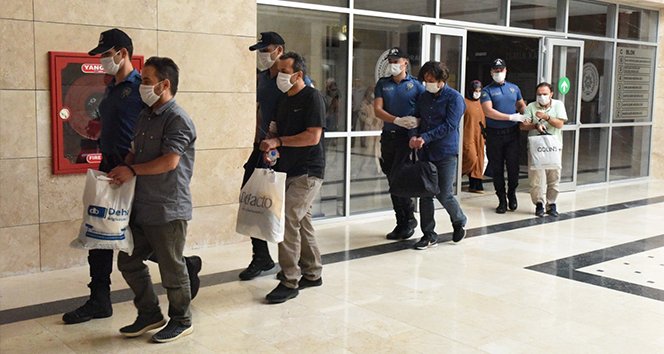A lawyer has claimed that the Turkish police documented routine daily activities as criminal acts in an investigation targeting two individuals allegedly linked to the Gülen movement.
Lawyer and human rights advocate Gökhan Güneş shared court documents on X, where activities such as visiting graves and funds transfers were used as evidence against both suspects.

The documents, prepared by the Denizli Police Department and submitted to the Chief Public Prosecutor’s Office in 2022, was part of a broader investigation into the restructuring of the movement.
The investigation focused primarily on cash deposits made through ATMs by C.B. Another suspect, identified as M.K., was flagged for receiving multiple deposits of around TL 10,500 ($295) over two years.
President Recep Tayyip Erdoğan has been targeting followers of the Gülen movement, inspired by the late Turkish cleric Fethullah Gülen, since corruption investigations revealed in December 2013 implicated then-prime minister Erdoğan as well as some members of his family and inner circle.
Dismissing the investigations as a Gülenist coup and a conspiracy against his government, Erdoğan designated the movement as a terrorist organization and began to target its members. He intensified the crackdown on the movement following an abortive putsch in 2016 that he accused Gülen of masterminding. The movement strongly denies involvement in the coup attempt or any terrorist activity.
The investigation went beyond financial transactions. Police flagged a cemetery visit as suspicious when C.B. was seen praying at the grave of G.P., a deceased individual allegedly associated with the movement. Investigators labeled this as an organizational act rather than a personal or religious gesture.
The routine employment history of both C.B and M.K was also scrutinized for alleged links to the movement. Authorities examined past jobs and financial activities for potential signs of involvement, suggesting that even standard career records might indicate illicit ties.
In a statement to the police, C.B. admitted to depositing money into M.K.’s account on three occasions via ATM transactions without using a card. He explained that these were personal loans, made after M.K. contacted him via WhatsApp citing financial difficulties. C.B. said he knew M.K. as his son’s former teacher and had no recent or ongoing relationship with him.
C.B. denied any ties to the movement, asserting that his interactions with individuals named in the investigation were incidental or business-related. He clarified that a cemetery visit flagged as suspicious was to pay respects at a friend’s grave, not for organizational purposes. When asked about apps like Signal on his phone, C.B. said they may have been installed by his children and denied frequent use of them.
The Turkish government accepted such daily activities as having an account at or depositing money in a Gülen movement affiliated bank, working at any institutions linked to the movement or subscribing to certain newspapers and magazines as benchmarks for identifying and arresting tens of thousands alleged members of the movement on charges of membership in a terrorist organization.















